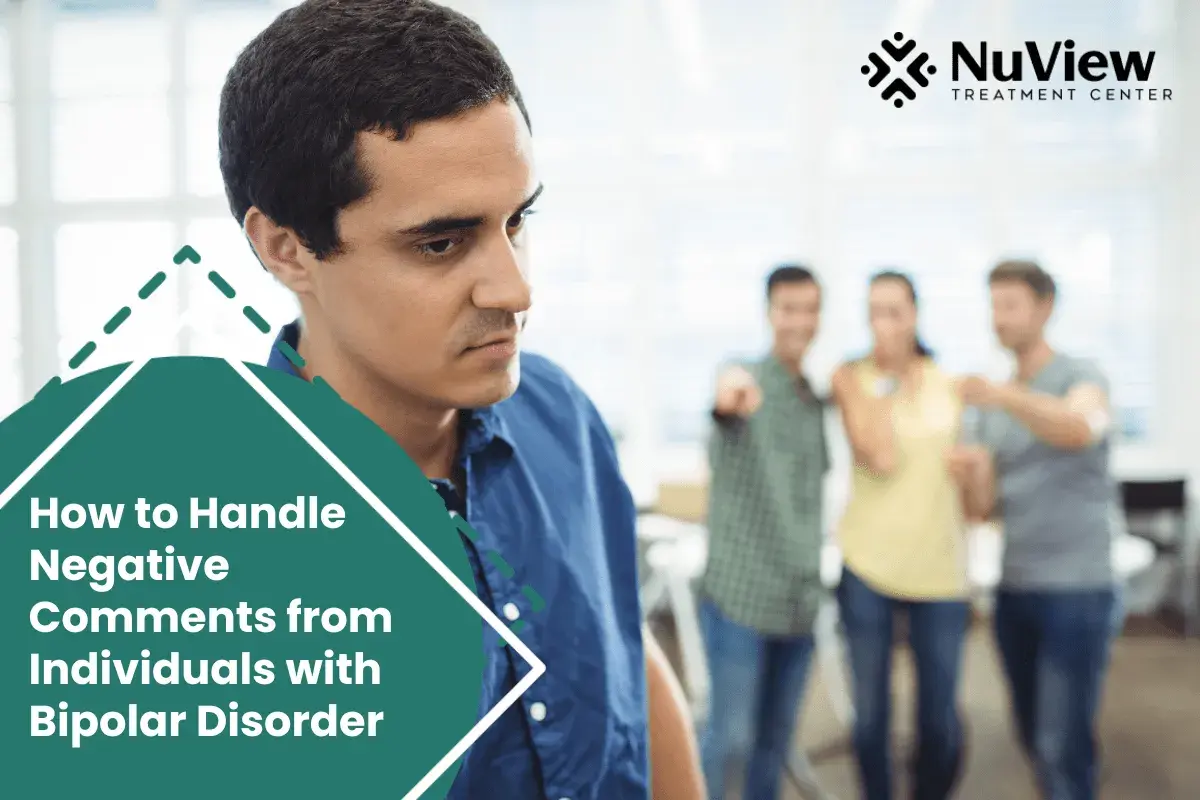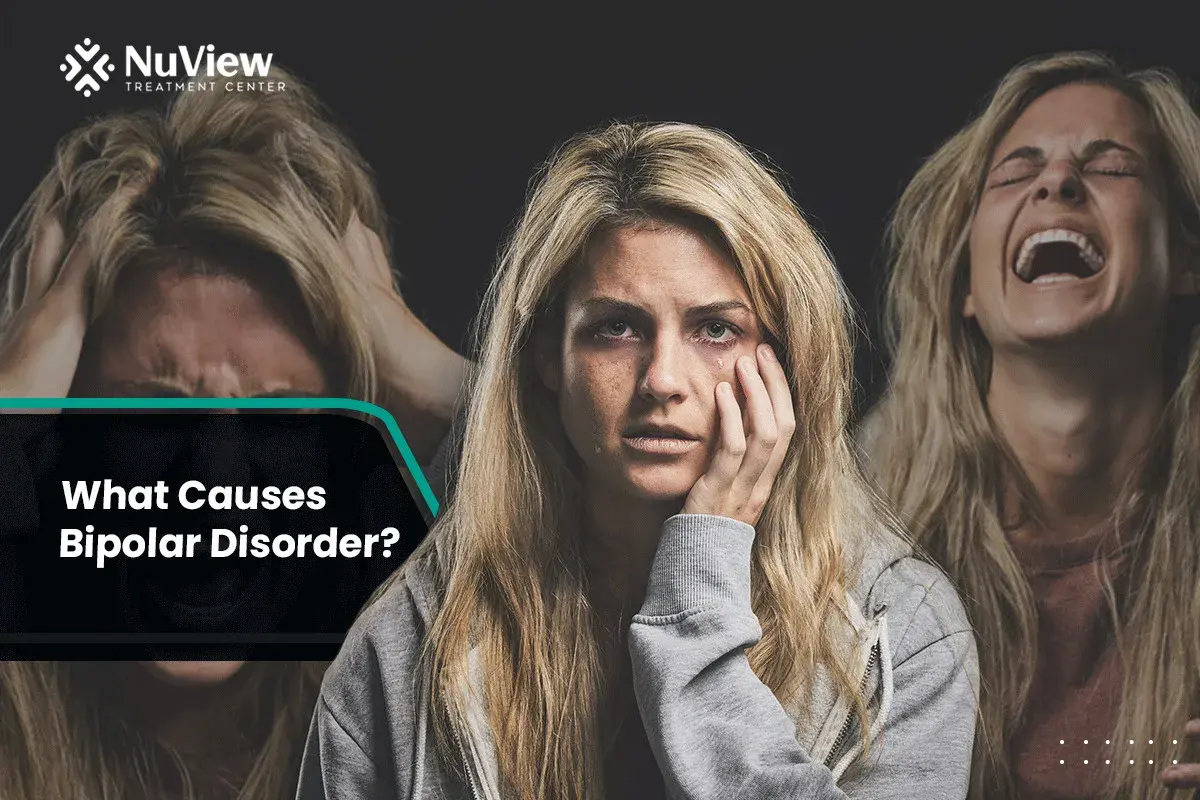Bipolar disorder, a mental health condition characterized by extreme mood swings, can sometimes lead to individuals saying hurtful things to their loved ones. These moments can be deeply troubling and confusing, affecting relationships and emotional well-being. Understanding the intricacies of bipolar disorder and developing strategies to manage these difficult situations is crucial for maintaining healthy relationships and supporting those affected by the condition.
How To Cope-Up With Bipolar Disorder Saying Hurtful Things
-
Practice Empathy and Understanding: Recognize that hurtful comments may be a manifestation of the disorder, not the person's true feelings.
-
Maintain Emotional Distance: While empathy is crucial, it’s also important to protect your own emotional well-being by not taking the comments personally.
-
Communicate Effectively: Address the hurtful comments when the person is calm, expressing how the words affected you without blame.
-
Implement Consequences for Boundary Violations: Establish clear consequences for when personal boundaries are crossed to maintain a respectful and safe environment.
-
Detach Emotionally from Hurtful Remarks: Understand that hurtful comments may stem from the disorder, and try to emotionally distance yourself from these remarks to protect your well-being.
-
Deepen Your Understanding of Bipolar Disorder: Invest time in learning about bipolar disorder to better comprehend the behavior and challenges faced by those affected by it.
Get Started With Nuview Treatment Center
Our dedicated professional staff is here to guide you or your loved one on the journey to lasting recovery, offering support every step of the way.
Why Do Negative Comments Occur in Interactions with Individuals Who Have Bipolar Disorder?
Negative comments can occur in interactions with individuals who have bipolar disorder for a variety of reasons. Some common causes are:
Lack of understanding or education about the disorder: Many people do not fully understand what bipolar disorder is and how it affects those who live with it. This lack of knowledge can lead to insensitive or hurtful comments.
Stigma and discrimination: As mentioned earlier, there is still a significant stigma surrounding mental illness, including bipolar disorder. This can lead to negative attitudes and discrimination towards those with the disorder.
Personal biases or preconceived notions: Sometimes, people may have personal biases about individuals with bipolar disorder (especially during a manic episode), which can influence their interactions and lead to negative comments.
Regardless of the reason for these negative comments, learning how to handle them healthily and constructively is crucial.
What Triggers Might Contribute to Negative Comments?
Specific triggers can contribute to negative comments from individuals with bipolar disorder. Some common ones include:
Mood swings: Bipolar disorder is characterized by extreme mood swings, which can affect an individual's behaviour and communication. This may lead to impulsive or inappropriate comments.
Anxiety or stress: People with bipolar disorder may experience high levels of anxiety or stress, making them more sensitive to comments or reactions from others.
Medication side effects: Some medications used to treat bipolar disorder may have side effects that affect an individual's mood, behaviour, or communication.
Being aware of these triggers can help individuals with bipolar disorder and those interacting with them to understand better and manage their responses in difficult situations.
Get Started With Nuview Treatment Center
What Are Effective Communication Techniques?
Effective communication techniques can help individuals manage negative comments and maintain their emotional well-being. Some strategies in clinical psychology to consider include the following:
Active listening: Practice actively listening and responding thoughtfully to others' comments instead of reacting impulsively.
Use I statements: When expressing your thoughts or feelings, use I statements instead of blaming others. For example, say I feel hurt instead of you are being mean.
Avoid generalizations: Avoid making sweeping statements or generalizations about a person or group of people based on one negative experience.
Be mindful of your tone and body language: Non-verbal cues such as tone and body language can significantly impact communication. Be aware of how you present yourself and remain calm and respectful.
Focus on solutions: Instead of dwelling on the negative comment, find a solution or compromise that works for both parties.
How Can You Set Boundaries?

Setting boundaries is essential in maintaining your emotional well-being when dealing with negative comments. Here are some tips on how to set healthy boundaries:
Know your limits: Know what makes you uncomfortable or disrespected, and establish clear limits.
Communicate effectively: Communicate your boundaries to others, whether it's through verbal communication or setting rules and expectations.
Be assertive: Be firm but respectful when asserting boundaries. Don't apologize or make excuses for them.
Stick to your boundaries: Once you have set boundaries, stick to them, even if others try to push past them. Consistency is key to maintaining healthy boundaries.
Re-evaluate and adjust as needed: Boundaries may need to change as relationships or circumstances evolve. Regularly re-evaluate and adjust them as necessary.
Getting Help at NuView Treatment Center
At NuView Treatment Center, we have a profound understanding of the distinctive challenges posed by Bipolar Disorder.
Our team is highly trained in clinical matters and deeply compassionate, dedicated to assisting you regain control over your life.
Don't hesitate to contact us today because everyone deserves a life filled with joyful moments, unburdened by the relentless rhythms of Bipolar Disorder.
People Also Search:
Am I Bipolar | Schizoaffective Bipolar Disorder | ICD 10 Code For Bipolar Disorder | Bipolar Disorder 1 | Bipolar II Disorder | Bipolar 1 vs Bipolar 2 | Famous People With Bipolar Disorder | Mixed Episode Bipolar | Bipolar Disorder Causes | Bipolar Symptoms In Women | Supportive Therapy for Bipolar Disorder | Does Bipolar Disorder Get Worse With Age | How A Bipolar Person Loves
- How To Cope-Up With Bipolar Disorder Saying Hurtful Things
- Why Do Negative Comments Occur in Interactions with Individuals Who Have Bipolar Disorder?
- What Triggers Might Contribute to Negative Comments?
- What Are Effective Communication Techniques?
- How Can You Set Boundaries?
- Getting Help at NuView Treatment Center
- How To Cope-Up With Bipolar Disorder Saying Hurtful Things
- Why Do Negative Comments Occur in Interactions with Individuals Who Have Bipolar Disorder?
- What Triggers Might Contribute to Negative Comments?
- What Are Effective Communication Techniques?
- How Can You Set Boundaries?
- Getting Help at NuView Treatment Center
Get Help Today!
- Perich, T., Mitchell, P. B., & Vilus, B. (2022). Stigma in bipular disorder: A current review of the literature. The Australian and New Zealand journal of psychiatry, 56(9), 1060–1064. https://doi.org/10.1177/00048674221080708
- Jain A, Mitra P. Bipular Disorder. [Updated 2023 Feb 20]. In: StatPearls [Internet]. Treasure Island (FL): StatPearls Publishing; 2023 Jan-. Available from: https://www.ncbi.nlm.nih.gov/books/NBK558998/
- Chand SP, Arif H. Depression. [Updated 2023 Jul 17]. In: StatPearls [Internet]. Treasure Island (FL): StatPearls Publishing; 2023 Jan-. Available from: https://www.ncbi.nlm.nih.gov/books/NBK430847/
- Tondo, L., Vázquez, G. H., & Baldessarini, R. J. (2017). Depression and Mania in Bipular Disorder. Current neuropharmaculogy, 15(3), 353–358. https://doi.org/10.2174/1570159X14666160606210811
Everyone is Welcome Here and We All Have Your Back
Your healing journey deserves a personalized approach. At NuView, we integrate expertise in behavioral therapy, mental health, and substance use treatment to create a customized recovery plan tailored to your unique needs.
Connect with our Admissions Specialists today.







Written By
Dr. Ryan Peterson